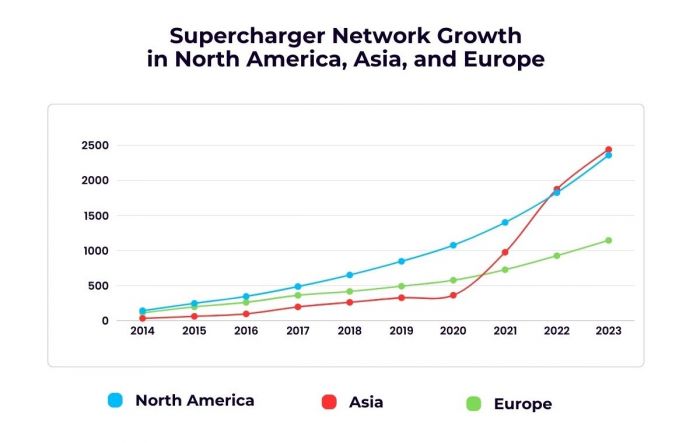The Honda Indy V8 Indy is a series of 3.0L and 3.5L naturally-aspirated engines produced between 2003 and 2011. It was manufactured by Honda Performance Development (HPD) with its primary application focused on track use, so there's no doubt that it is capable of delivering plenty of power when needed. Furthermore, being a product of a renowned automaker with more than half a century of experience in the car industry, it is also known for its quality and reliability.
Overall, the Honda V8 enjoyed unprecedented success in the Indy racing circuit. However, that does not mean it is free from any mechanical issues. In this article, these are the things that we will exactly look at.

Key features and my opinion about the engine
- Production years:2003-2011
- Average lifespan of V8 Indy:unknown
- Fuel supply type:port injection
- Power range:650-670 hp
- Fuel efficiency:bad
- Engine block material:aluminum
- Engine reliability score:low
- The most common problems:bad oil consumption, huge fuel consumption, noisy work, very expensive fuel, overall poor durability.
Honda V8 Engine Longevity
On average, the Honda V8 can easily last over 180,000 miles before requiring a replacement or overhaul. However, we all know by now that this is not usually the case when it comes to high-performance engines as people tend to push them beyond their limits. Therefore, what we are referring to here is when the engine is properly maintained and driven with care.
Honda V8 Engine Problems
As they say, "The flame that burns twice as bright burns half as long." We can relate this to the high-performance Honda V8 engine due to the tendency of its parts to wear prematurely as it logs more years and mileage, especially when it is frequently used on track. With this in mind, here are the common issues raised by owners of the Honda V8 after prolonged use of the engine:
1. Excessive Fuel Consumption
Being a high-performance engine, the Honda V8 is not exactly expected to deliver the best fuel economy ratings. However, what we are looking at here is when there is a significant change in its fuel utilization wherein it is already consuming more than what it used to. This can be a reason of major concern because it may signal serious problems with the engine.
There are several reasons why this may happen and it is important to diagnose the problem as soon as possible so that it can be fixed. One possibility is that the engine's air-fuel mixture is not optimal. This can happen if the oxygen sensor is not working properly or if there is a blockage in the exhaust system. If this is the case, any faulty sensor should be replaced and the blockage in the exhaust should be cleared.
Another possibility is that the engine's timing belt may already be worn and needs to be replaced. If this is not done, it can result in serious engine damage.
One more thing you have to look at is faulty fuel injectors. If they are not working properly, the engine will not be able to get the right amount of fuel and this will lead to higher fuel consumption. If the injectors are no longer functioning as intended, they should be changed to new ones.
Lastly, hoses and seals should also be inspected for leaks. If the problem is found there, then the root of the issue should be addressed immediately via parts replacement.
If you notice that your Honda V8 engine is consuming more fuel than usual, make sure to have it checked by a qualified mechanic as soon as possible. Taking care of the problem right away will save you from more expensive repairs down the road.
2. Heavy Oil Consumption
Heavy oil consumption may lead to the quick depletion of your vehicle's oil reserves and a lack of lubrication on its moving parts. Without oil, your car's engine will eventually seize up, and it will no longer be able to run. That's why it's important to keep a close eye on your vehicle's oil level and to top it off when necessary.
Heavy oil consumption may signal problems with the Honda V8 engine. If you think you may be experiencing an unusually high oil consumption, it is important to get your vehicle checked out by a qualified mechanic as soon as possible. By doing so, you can dodge major engine damage and keep your car running smoothly for a long time.
One way to diagnose the cause of increased oil consumption is by performing a compression test. This will determine if there is excessive wear on the piston rings or valves. If the results of the compression test are normal, then the next step is to check for leaks in the engine. Common places for leaks include the valve cover gaskets, oil pan gasket, and front and rear main seals. If any of these are leaking, they will need to be replaced.
Another possible cause of increased oil consumption is improper ring gap clearance. The piston rings need to have a specific clearance in order to seal properly. If the clearance is too great, the oil will be able to pass through the rings and into the combustion chamber. This can be fixed by adjusting the ring gap or replacing the rings altogether.
Finally, if all else fails, it is possible that the engine itself is simply worn out. In this case, the only solution is to replace the engine. However, this should only be done as a last resort because it is a very costly repair.
3. Overheating
Overheating can signal a worrisome problem with the Honda V8 engine. The signs of overheating may include a dramatic increase in engine temperature as indicated by your instrument cluster, reduced power, rough idle, and misfires.
If you notice any of these symptoms, it's important to diagnose the possible causes of the problem as well as their solutions. Overheating can be due to a faulty thermostat, a restricted radiator, a leaking head gasket, and low coolant levels.
Each of these problems has its solution. For example, a faulty thermostat can be replaced, while a restricted radiator can be cleaned or replaced. A leaking head gasket must be repaired, and low coolant levels must be replenished.
Taking care of overheating issues as soon as they arise is important to keep your Honda V8 engine running smoothly. If you let the problem persist, it could lead to more serious engine damage, accidents, or fire.
4. Clunky Noises
Some things can cause clunky noises in a Honda V8 engine. The most common is worn-out parts. This can be because of many things such as age, lack of maintenance, or using the wrong type of oil. Other causes of clunky noises can include loose bolts or other fasteners and damaged or misaligned engine parts.
If you're hearing clunky noises coming from your Honda V8 engine, the first thing you should do is check the oil level and quality. If the oil is low or dirty, this could be causing the noise. You should also check for any loose bolts or other fasteners. If you find any, tighten them up. Finally, take a look at the engine parts to see if anything is damaged or misaligned. If you find any damage, it's best to take the car to a mechanic to have the defective components fixed or replaced.
Clunky noises in your Honda V8 engine can be annoying, but they can be signs of terrible problems, too. By taking the time to diagnose the cause of the noise and having it fixed, you can evade more serious issues down the road.
Honda V8 Engine Specs
The 3.0L and 3.5L V8 came as a replacement for the highly successful 2.65L turbocharged Indy V8 jointly manufactured by Honda and Judd brands. During its run, the Honda V8 engine saw an equal amount of success in the IndyCar Series. In 2013, it was eventually retired in favor of the 2.2L twin-turbo V6 jointly made by HPD and American Honda Motor Company, Inc.
Depending on its application and version, it was capable of producing a whopping 650 to 670 hp and 320 to 360 lb-ft of torque. It had a high redline at 10,300 RPM, and it featured four valves per cylinder and dual overhead camshafts (DOHC).
The engine can operate on either E85 ethanol or unleaded gasoline depending on its configuration. This is delivered via an electronic indirect multi-point port fuel injection (MPFI) system. It utilizes aluminum for its block and head, as well, making it very durable and lightweight.
Conclusion
The Honda V8 engine is very powerful and reliable. However, like all else, it has its limits and a specific set of problems.
The most common issues with the Honda V8 engine are excessive fuel consumption, heavy oil consumption, overheating, and clunky noises according to most of its owners. These problems can be caused by a number of things but the primary culprit is usually the wear and tear of engine components, and it is important for you to recognize them right away.
With the tips we have provided here, we hope that you can find where the problem is coming from immediately so you can describe it in detail to your mechanic, hence, increasing his/her chances of successfully solving the issue.
If you're experiencing issues with your Honda V8 engine, it's important to take care of them as soon as possible. Ignoring them could lead to more serious damage or accidents. By taking the time to diagnose and fix the problem, you can keep your Honda V8 engine in its top form for a long time.
About the authors
The CarAraC research team is composed of seasoned auto mechanics and automotive industry professionals, including individuals with advanced degrees and certifications in their field. Our team members boast prestigious credentials, reflecting their extensive knowledge and skills. These qualifications include: IMI: Institute of the Motor Industry, ASE-Certified Master Automobile Technicians; Coventry University, Graduate of MA in Automotive Journalism; Politecnico di Torino, Italy, MS Automotive Engineering; Ss. Cyril and Methodius University in Skopje, Mechanical University in Skopje; TOC Automotive College; DHA Suffa University, Department of Mechanical Engineering






Add comment